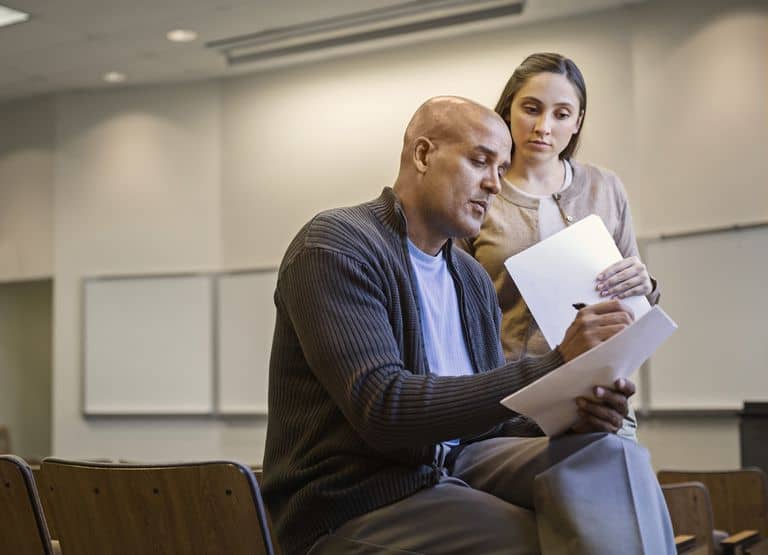How to Get an Academic Recommendation Letter
Whether you’re just finishing up your undergraduate degree or have been out of school for a while, applying for grad school can be an intimidating process. After all, you remember how you felt while applying for undergrad, right? But don’t worry! There are a number of components to your application, all of which give you a tremendous opportunity to show your school of choice how great of a candidate you are!
In addition to your personal statement, one of the most humanizing pieces of your application is the recommendation letter from an academic professional. A glowing recommendation from someone who has experienced you as a student is a trusted testament to your work ethic and the assets you bring to the classroom. This can be especially helpful if your GPA or test scores don’t reflect your ability as much as you’d like them to. But who do you ask? And how do you ask?
Ask Personally, Then Through Email
A good recommendation letter will require lots of thought and effort from the person writing it. Because of that, you should give your professor the courtesy of meeting in person with the time to think and discuss with you thoroughly. This isn’t something to ask them in passing or right before class; ask to plan a time to meet and talk about your plans for graduate school. You might be able to visit them during their office hours, or they may invite you to see them right after class. When you take the time to plan and meet in person, your professor will be about to see how much this letter means to you and your application. If you cannot meet in person (COVID, am I right?), schedule a call!
Once you do speak with them, follow up via email with more concrete details about your recommendation letter. Not only will this help remind them to write your letter, but it can also help them to know the exact steps they need to take in order to submit it. Your email doesn’t have to be anything fancy; if anything, keep it concise:
Hello Professor,
Thank you again for agreeing to write me a recommendation letter for my graduate school application. Below is the list of requirements needed for the letter along with how and where to submit it.”
A Strong Reference Requires Your Professor to Know You Well
You shouldn’t ask for a recommendation letter from just anyone. After all, how can you get a truly powerful and accurate recommendation from a professor who hardly remembers you out of their hundreds of students? Remember, your recommendation letter is not just a sheet of paper in which your professor relays your grades. It’s a detailed account of your excellent work as a unique individual. That said, even a professor who knows you well won’t know the ins and outs of all your accomplishments.
Help your professor get an idea of the attributes that you want them to focus on. Provide them with more information about your résumé, internship experiences, awards you’ve won, and what your goals are for the future. When they do write your letter, they won’t have to wrack their brain to try to remember every great thing about having you as a student.
Consider Your Recommender’s Role in the Process
Keep in mind that your favorite professors have other students looking for recommendation letters as well!. Professors usually draft tens of recommendations per semester and are often asked to rank students comparatively. Be mindful of this—think honestly about how you were as your professor’s student; based on your participation in their class, would they truly recommend you over others whom they have taught? Pay attention to your professor’s demeanor and whatever concerns they might bring up in your meeting. Graduate school is a rigorous endeavor, and even if they like you as a person, it’s their responsibility to write honestly about your performance.
Communicate Logistics: Time to Draft and How to Submit
As mentioned before, you will do your professors a great service providing as many details for your letter as possible. Provide a URL to the instructions and/or where to submit the letter as well as any samples of your strongest work in their discipline. Most importantly, give them ample time to write. Your professor has many other responsibilities, from teaching class and doing research to writing other recommendation letters for their students. If possible, reach out to them at the start of the semester long before the busiest times of the year. You should expect a recommendation letter to take two weeks to complete at minimum. You won’t be doing yourself any favors by waiting until right before the application is due.
Applying to graduate school can be a challenge, but a strong recommendation can carry lots of weight that will help you snag your spot at the school of your dreams. As you continue to look for, apply to, and prepare for grad school, always remember that Abound: Grad School is your resource for every step in the process.




